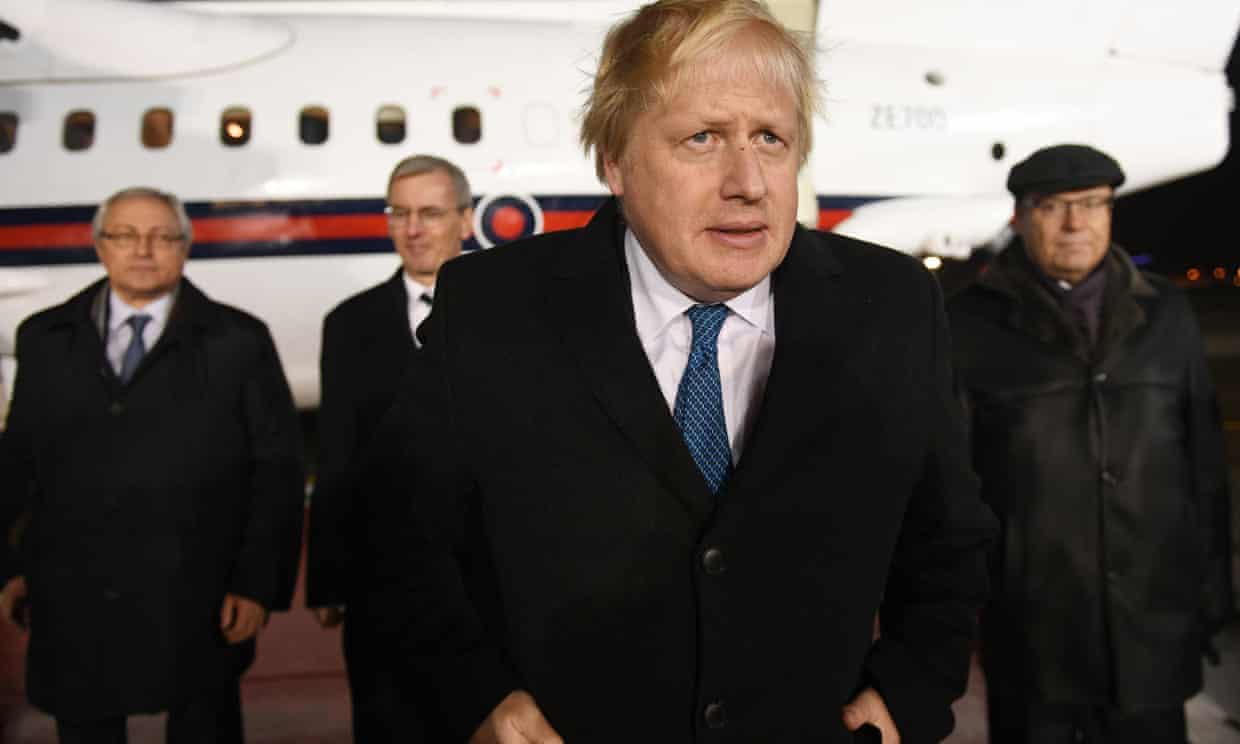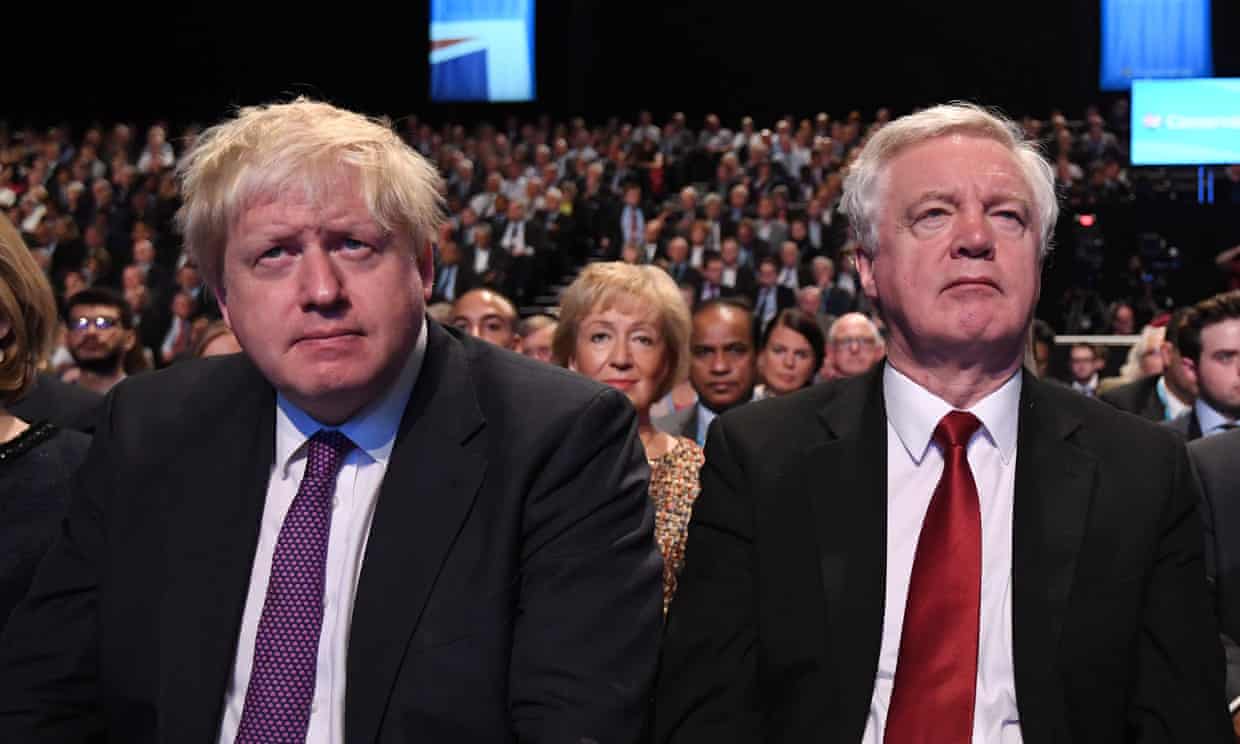Boris Johnson’s resignation: good riddance to a national embarrassment
Posted on July 10, 2018 by michaellee2009
Theresa May tried to hold her party together over Brexit. Two senior resignations mean she now has to win the battle against the leaver fanatics

Theresa May has been prime minister for just two years. Until Monday she had managed, often at sapping cost, to hold the Conservatives together behind a Brexit strategy that combined unsustainable contradictions, studied vagueness and some abruptly dangerous red lines. Last week at Chequers, Mrs May persuaded her cabinetto blur some of the red lines, clarify some of the vagueness and make some of the choices that are required for the relatively frictionless post-Brexit relationship with the EU that she rightly prefers. She has now discovered the political cost of that.
The Chequers agreement has now caused two – and there may be more – serious cabinet resignations: first of David Davis as Brexit secretary, then of Boris Johnson as foreign secretary. The wider Tory party response – starting with Monday’s tense exchanges in the Commons and followed by a meeting of Tory backbenchers – has yet to make itself fully felt. The prospect of a vote of confidence challenge to Mrs May is clearly real. But the deeper political question facing the Tories is clear too. Will the hardline leaver minority at Westminster allow Mrs May to govern with a new Brexit policy that leans rather more towards Europe? Or will they risk wrecking the Tories as a party of government by seeking to prevent it? The coming days will determine whether Mrs May’s part of the Tory party has the power to prevent the anti-European, anti-regulatory, English nationalist bits of the party from vetoing everything else the party stands for or seeks to do. It is not an exaggeration to say the soul of the party may be at stake.
These were serious resignations, but the resigners themselves are not. As Brexit secretary in a government whose whole existence is dominated by Brexit, David Davis was a big figure in the first two May years. But he does not, by himself, have the clout to derail the new post-Chequers Brexit policy. Mr Davis was an underwhelming Brexit secretary, and was marginalised by Downing Street in favour of Mrs May’s Brexit adviser Olly Robbins. He has not led recent negotiations, spending a mere four hours with the EU’s Michel Barnier since 2017. He has regularly telegraphed his unhappiness, and his resignation letter was first drafted a month ago. It was a surprise that he signed up to the Chequers document. It was not a surprise that he quit at the weekend. Giving his job to Dominic Raab, yet another all-too-brief appointment as housing minister, was designed to preserve the post-2016 cabinet Brexit balance.

Mr Davis nevertheless resigned on a matter of policy principle. He did not believe that the new facilitated customs arrangement would fly with Brussels. He disliked the role that the European court of justice might play in arbitrating future trade rules. These are not foolish questions. But he did not resign because of his personal ambition, since he is realistic about his chances of future office.
The same cannot possibly be said about the former foreign secretary Boris Johnson, whose departure 18 hours after Mr Davis could change the crisis facing the government from one concerning Brexit policy to one concerning the future of Mrs May. Mr Johnson is the most overrated politician in Britain, especially by himself. He was an embarrassingly useless foreign secretary. He diminished Britain’s standing in the world and he diminished his own reputation by the way he played his role, not least by his praise for Donald Trump. He was simply not up to the job. But Mr Johnson does not do serious. He does self-interest. The British government is better off without him. The Tory party should not deceive itself that he is the answer to its problems.
The Tory party has a historic reputation for being serious about power. But the modern Tory party can also be an extraordinarily febrile hothouse. It now faces a battle that was always going to have to be fought eventually, between the fanatics of the right and the pragmatists of the centre-right. Mrs May has been tenacious and sometimes skilful (though sometimes not) in postponing the battle. But the moment has arrived – and it must be resolved
No comments:
Post a Comment